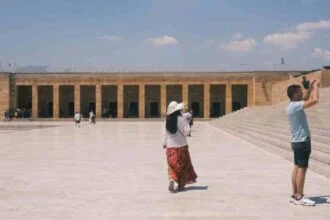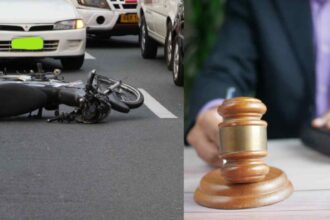SalamatRaho presents the story of ‘Avani’- a community built on the principles of sustainability and local empowerment. A global network of diverse employees, interns and volunteers give life to Avani’s community centric rural development programs.
The name ‘Avani’ comes from the Hindi word Earth.
Also Read: Volunteer Projects Archives – Nomad Lawyer
The story of Avani Unfolds
“You have to dream before your dreams can come true.” — A. P. J. Abdul Kalam.
Some people throttle their potential by refusing to think “what if?” and ignoring what’s truly important to them in life. You have to start dreaming before you can achieve anything.
And who knows this better than Rashmi Bharti and Rajnish Jain.
They together developed a dream to live in a rural area in the Himalayas and to contribute with whatever skills they had, especially for the less fortunate. It was a tough call Rashmi had to take, and she took it, with the support of her husband and life partner Rajnish.
The soul searching journey began
Rashmi was born and brought up in Delhi. She was fortunate to have been introduced to a living master at a young age of 10 when her father took them to Poona to the ashram of Bhagwan Shree Rajneesh (later called Osho). They grew up listening to the discourses of Osho on different spiritual masters and mystics. His talks on women reinforced her very rebellious beliefs of having equal rights to her freedom to be as she wanted to be. At the age of 21 she decided to go and live in the Rajneesh Ashram.
Rashmi spent almost three years there – living, working and meditating with a group of 5000 sannyasins from 50 different countries. She worked in the department of English publications and had the wonderful opportunity to learn from the very best design and computer professionals. She met her husband there who had very similar thought processes about life and service.
Then the lamp lit- plans changed.
The turning point in Rashmi and Rajnishs’ life came when they felt that they needed to step out again into the world and still be meditators.
They left the ashram in 1990, came back to Delhi and started on their new journey.
Journey to the mountains
After a short time in Delhi, they decided to make a shift to the rural mountains and spent two years in the mountains of Kumaon, near Mukteshwar and then Bageshwar. By then, Rashmi knew she had found her calling. Next stint was Orissa, to work with the tribal community of Kondh tribe, Kalahandi district and the unlearning that happened during those two years in a thick forested area devoid of much facilities or accessibility, allowed her to adapt, adjust, learn and contribute in a divergent reality that had poverty and happiness coexist with contentment, deforestation and hunger. She developed a deep respect for the tribal culture and learnt many life lessons there.
Next stage in life- Rashmi moved back to Delhi and got connected with Bunker Roy of the Barefoot College, Tilonia, Rajasthan and worked with him for two years in Delhi, with the network organization of Tilonia called Sampda.
Fate led her to launch Avani
After gaining the required experience, they shifted back to Kumaon in 1996 with no plan, no project and no geographical location. Just a burning desire to live again in the shadow of the majestic Himalayas.
Rashmi narrates- “Initially, we collaborated with a Gandhian organization that was based at Dharamghar, about 50 kms from Bageshwar. They intended to work with bringing solar lights to unelectrified and inaccessible villages. There were no telephones in those days. Bit by bit, we established a dialogue with the local community.” Soon, the Avani project was launched.
Launch of the solar and textile programs.
There was a lot of skepticism about their presence and the solar energy program. It took them a year or so to have the trust and support of the community. And they also realized that the poor families could not afford the electricity and Rashmi had to find a way to generate employment for them. This is how the textile program was born. They began working with 20 families of the Shauka community who were traditionally traders with Tibet and worked with Tibetan sheep wool to create blankets, tweeds and carpets.
Rashmi – supporting 2200 families in 64 villages
Rashmi had no experience in this field but she learnt her way through. It slowly developed into a program that became self-sustaining and supported 2200 families in 64 villages before COVID.
The business has been established as Earth Craft Cooperative that is owned by the producers. They are addressing the entire supply chain from cultivation of natural dyes to hand spinning of natural fibres and hand weaving and tailored products. Finally, an acknowledgement for the rural artisans and their work.
Upgrade skills – employment generation – dealing with pollution
The core philosophy is to take up young people who had very little or no opportunity to learn, grow and to earn their livelihood. They trained unskilled and semi-skilled rural women and school dropout young girls to become weavers and then farmers of dye plants.
They are the pioneers in the cultivation of altitude specific indigo in the Kumaon region of Uttarakhand, creating a sustainable solution and alternative to colorants for textiles, art supplies, cosmetics, paint and wood stains. The use of synthetically produced dyes and detergents are the highest polluters of soil and water worldwide. They have generated almost 5 crores as cash income in this region through the textile and natural dye program alone.
Innovations- Power generation
Six such plants that run on pine needles have already been set up that are operated by village level entrepreneurs. This is again an innovation and brings a sustainable solution for clean energy and prevents forest fires. It is a matter of design thinking that brings all elements into a circle of completion thereby interlinking the problem and the solution…
Established- then duplicate in other areas. Way to go !
Having established a workable model of a rural sustainable business, they are now a resource organization that will help in the replication of this model with adaptation to different areas. They offer training that is skill based as well as formulation and management based. They would like to set up resource centres in North and South of India that become active hubs of interchange and exchange of knowledge amongst practitioners of handloom and handicrafts. It would also be a centre of innovation, research and development that will help take this model to different regions.
Their work with water, energy and dyes help make the production cycle sustainable and eco-friendly.
Watch the video: https://www.youtube.com/watch?v=HMJdEjLmxQI
This work has given them both the gift of finding their calling too…
Rashmi says -“ Our approach to our work is to contribute to the Earth and leave her a little more beautiful than we found it.
To live in harmony with nature and her people is our objective in life.”
Rashmi says “Our work has grown organically as we found that everything and everyone is interconnected. You cannot work with just one aspect of rural life. As we began our work to bring lights to rural homes where there was no electricity, we were led into income generation of poor families and then to water and forest conservation while creating sustainable livelihoods. All the while changing the perspective of the rural youth from saying “yahan to kuch nahin hai. Pahad mein kuch nahin ho sakta…” to saying “yahan kya nahin hai? Aur kya kuch nahi ho sakta!! It is just a matter of perspective. Always looking at solutions without being overpowered by the problem. That approach has kept our head above the water.” Persistence is much of what separates the successful from the pure wishful.
For connecting or donating. Please contact-
Rashmi Bharti
Co-Founder and Director Programs, Avani Society
Founder and Chairperson, Kumaon Earthcraft Self Reliant Cooperative
P O Tripuradevi, via Berinag, District Pithoragarh,
Uttarakhand 262531
Ph: +919411105252
Email: rashmi@avani-kumaon.org
Website: www.avani-kumaon.org
Instagram: avani.earthcraft
Facebook: avani kumaon
E store – India: avani earthcraft
The desire to discover our calling and to find the life that we love was our journey, of eliminating what we did not want and that the change began with us. Social impact was an outcome of our individual journey of self-discovery.
On one hand, they were upskilling traditional artisans and skilling the unskilled women, on the other they were training a group of rural youth as managers.
Team NomadLawyer salutes Rashmi and Rajnish for creating such an impact in the Kumaon region!
TELL US YOUR STORY AT: connect@nomadlawyer.org
What is SalamatRaho
Team NomadLawyer’s ambition is to positively impact the world through the stories of HumanKind. We believe in the art of storytelling. Through “Salamat Raho ”, we are creating a database for social good in the form of “Impact Stories”, which will help us achieve our goal and reach out to the world at large. By contributing through your stories and experience you create a significant impact on the community and an exceptional experience for yourself. Visit the NomadLawyer portal at nomadlawyer.org and you can also get in touch with us at connect@nomadlawyer.org We will use hashtag #SalamatRaho for the series.
Visit the website: Home – Nomad Lawyer





